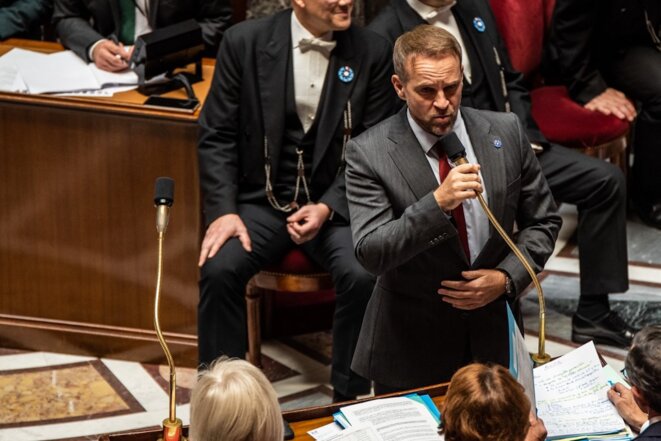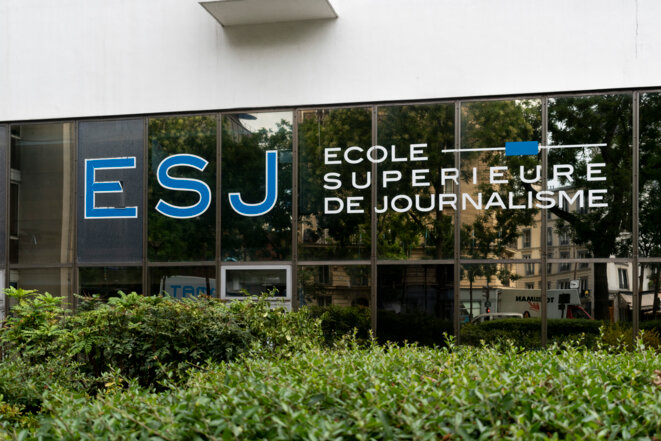Tehran must embrace atomic bombs to achieve "regional balance," said an Iranian member of parliament on Saturday, adding fuel to an already heated discourse over the future of Iran’s deterrence policies.
“Our adversaries possess extensive and ready-to-deploy arsenals of nuclear warheads, leaving Iran at a significant strategic disadvantage,” Ahmad Naderi told local media on Saturday for the second time since last week. “Over the years, we have incurred costs equivalent to several times the expense of constructing an atomic bomb through our nuclear program, yet it has yielded no tangible security benefits.”
"I believe we must pursue atomic weapons testing, as no other path remains for us given the lack of regional balance," he added, in an apparent reference to setbacks by Iran's regional proxies.
This stance aligns with a recent call by 39 Iranian lawmakers urging the Supreme National Security Council to reassess the country’s defense strategy. They argued that Iran's current policies might be inadequate in addressing perceived threats, particularly from Israel.
The lawmakers also raised doubts about the long-term viability of Supreme Leader Ali Khamenei’s religious decree banning nuclear weapons, suggesting that evolving circumstances could warrant a shift in approach.
MP Mohammad Reza Sabaghian described nuclear weapons as essential for deterrence, arguing they are necessary for self-defense in light of Israel’s arsenal. Others, such as MP Hassanali Akhlaghi Amiri, suggested that Khamenei’s fatwa could evolve, as Islamic rulings can adapt over time to new circumstances. He explained that secondary rulings can replace primary ones when conditions change, implying the fatwa is not permanent.
Iranian officials have consistently portrayed the country’s nuclear program as peaceful, frequently citing Khamenei’s religious decree against weapons of mass destruction. However, growing calls from lawmakers advocating for nuclear armament highlight the increasing pressure Tehran faces. These debates unfold amid heightened tensions with Israel and global uncertainty as the United States transitions to a new administration.
A more immediate concern, however, is Israel’s recent military actions, which have significantly weakened Tehran’s proxies, Hamas and Hezbollah, and included large-scale airstrikes on military targets inside Iran.
The relatively moderate news website Rouydad24 linked these discussions to Iran’s preparations for the January 20 US presidential transition, highlighting a dual-track strategy: balancing internal demands for a more aggressive defense posture with external diplomatic efforts. The push for a tougher stance comes primarily from hardliners, while the diplomatic initiatives reflect the government’s approach to navigating the shifting geopolitical landscape.
"Some in Iran maintain that hostility and antagonism with the United States are insurmountable, irrespective of whether Trump or another figure is in power. Others, however, argue for recognizing opportunities and responding to positive signals," the publication wrote on Saturday.
Pointing to the current Iranian administration’s strategy, the publication highlighted the government's activation of various diplomatic channels, including public and covert efforts, to navigate the challenges ahead.
Hesamodin Ashna, an advisor in Hassan Rouhani’s former administration, also noted that Iran’s most experienced diplomats are actively working across multiple channels. He cited Ali Larijani’s visits to Syria and Lebanon, where discussions included regional ceasefires, alongside reported international meetings involving Iranian representatives.
The government “is utilizing all its diplomatic capacities to address the situation wisely,” he wrote on X on Saturday.
With tensions rising and the potential for international pressure increasing, Tehran appears to be exploring both hardline measures and broader diplomatic strategies to safeguard its national interests.

 2 hours ago
19
2 hours ago
19


